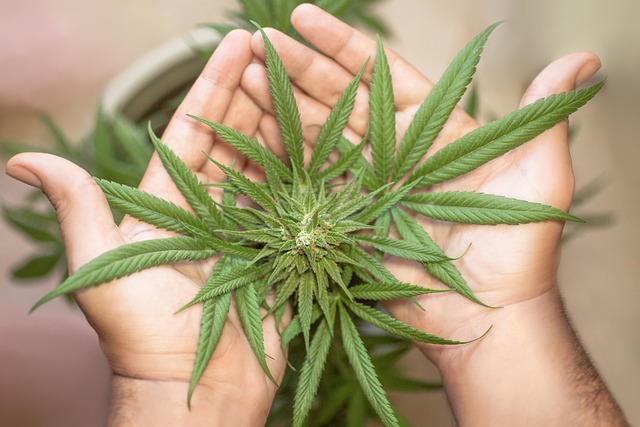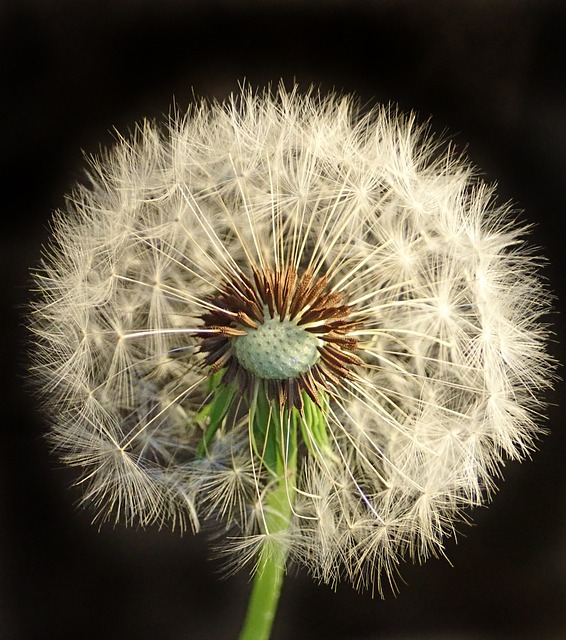THCA, or Tetrahydrocannabinolic Acid, is a non-psychoactive compound naturally present in cannabis plants and is gaining attention for its potential health benefits, particularly as a pain reliever and anti-inflammatory agent. In Hawaii, where the medicinal cannabis program is regulated, THCA-rich flowers are attracting both patients and researchers due to their therapeutic properties. The legality of these flowers hinges on maintaining THC levels below 0.3%, which classifies them as hemp under federal law, although state regulations may differ. THCA is distinct from its psychoactive counterpart, THC, as it inhibits the enzyme FAAH, potentially enhancing the body's natural cannabinoids without causing a high. Its legal status in Hawaii allows for the exploration of its medicinal applications and its transformation into THC through heating. This makes THCA a significant focus within Hawaii's evolving legal cannabis landscape, where it is legally recognized as a beneficial cannabinoid with exciting prospects for health and wellness.
discover the intricacies of THCA flower, a non-psychoactive cannabinoid that’s gaining attention for its therapeutic potential. This article delves into the multifaceted nature of THCA, from its chemical makeup to its cultivation and legal status in Hawaii, where it has garnered significant interest under ‘thca legal in Hawaii’ guidelines. Join us as we explore the entourage effect, the role of decarboxylation, and various consumption methods, ensuring a comprehensive understanding of this cannabinoid-rich flower. We’ll also examine current research on its therapeutic effects, the best practices for cultivating THCA-dominant strains, and how to maintain their potency through proper storage. Additionally, we’ll share patient experiences that highlight the benefits of incorporating THCA flower into a wellness regimen.
THCA Flower: A Comprehensive Overview

THCA, or Tetrahydrocannabinolic Acid, is a non-psychoactive cannabinoid found naturally in the resin of Cannabis plants. As an acidic precursor to THC (Tetrahydrocannabinol), THCA is gaining attention for its potential therapeutic properties, which are being studied for their effects on inflammation, pain relief, and other medical applications. In Hawaii, where the cultivation and use of cannabis for medicinal purposes are regulated under state law, THCA-rich flowers are a significant focus for both patients seeking alternative treatments and researchers exploring the plant’s full spectrum of benefits. The legality of THCA flower in Hawaii is an important aspect to consider, as it must contain less than 0.3% THC to be considered hemp and thus legal under federal law, although state laws may differ. This distinction is crucial for consumers, as it determines the legal status of the product they are purchasing.
The interest in THCA flower has surged due to anecdotal reports suggesting that it might offer a broader range of therapeutic effects without the psychoactive ‘high’ associated with its decarboxylated form, THC. Users report that THCA may provide relief from various conditions, including chronic pain and inflammation, without altering their mental state. In Hawaii’s regulated market, consumers have access to a variety of strains that are high in THCA, allowing them to experiment with the cannabinoid’s potential benefits. As the understanding and research on THCA continue to evolve, its role in the therapeutic landscape is becoming more defined, offering promising prospects for those seeking the potential wellness effects of cannabinoids without psychoactive side effects.
The Chemical Structure of THCA and Its Significance

Delta-9-tetrahydrocannabinolic acid (THCA) is the non-psychoactive precursor to the well-known psychoactive cannabinoid, THC. This chemical compound, found abundantly in raw cannabis plants, possesses a unique molecular structure characterized by a cyclic pentyl ring fused to an open hexyl side chain. The acidic form of THC, THCA, is significant for its potential therapeutic properties and legal status. In Hawaii, where the legislature has decriminalized certain forms of cannabis possession, THCA’s legal standing allows researchers and consumers to explore its benefits without the psychoactive effects associated with THC. The interest in THCA stems from its interaction with the body’s endocannabinoid system, which plays a role in regulating various physiological processes. Unlike its isomer, THC, THCA does not bind directly to cannabinoid receptors CB1 and CB2; instead, it can inhibit fatty acid amide hydrolase (FAAH), the enzyme responsible for breaking down endocannabinoids anandamide and 2-AG. This inhibition may lead to an increase in these naturally occurring compounds within the body, potentially offering therapeutic effects without the psychoactive high. The significance of THCA’s chemical structure lies in its potential to be processed into THC through decarboxylation—a process that can occur during the heating or curing stages of cannabis preparation, which is a key consideration for those in states like Hawaii where the legal landscape allows for such exploration and utilization of cannabis compounds.
THCA-rich flowers present a unique and intriguing facet of the cannabis plant, offering potential therapeutic benefits without the psychoactive effects associated with its decarboxylated form, THC. The recent legalization of hemp-derived products containing less than 0.3% THC at the federal level in the United States, including Hawaii, has opened new avenues for research and exploration into the diverse applications of THCA. As understanding of its chemical structure and the implications for health and wellness expand, so does the interest in the therapeutic properties of THCA flowers. This comprehensive overview underscores the importance of this non-psychoactive cannabinoid within the context of legal frameworks that govern its use, particularly in states like Hawaii where such products are legally sanctioned. As the landscape of cannabis legislation continues to evolve, so too will the potential for THCA flowers to play a significant role in holistic health practices.
